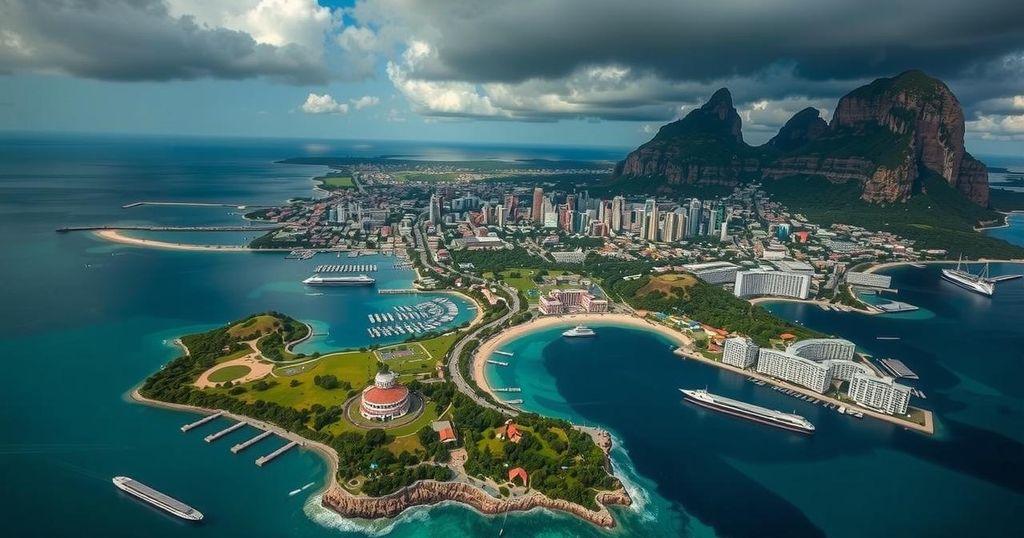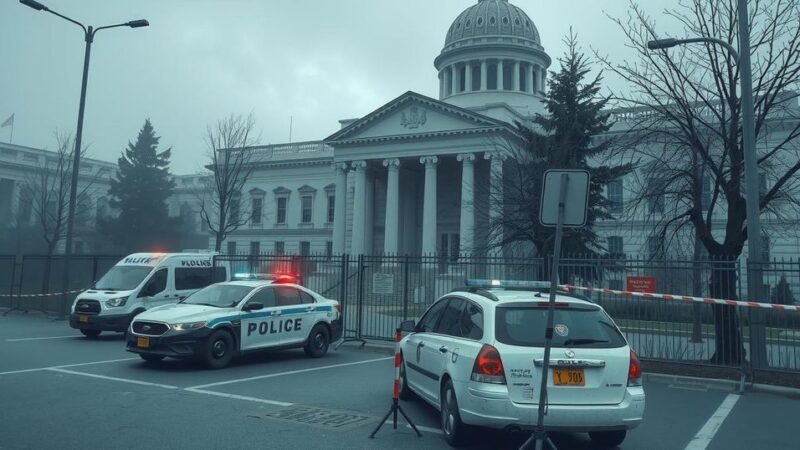Mauritius is conducting its 12th national election amid serious allegations of wiretapping involving government officials. Approximately one million voters are expected to participate in this charged atmosphere, influenced by social media bans and rising public discontent over high living costs and governance issues. The election will determine crucial leadership roles in a nation known for its democratic stability and economic potential.
Mauritius is currently navigating a pivotal national election under a cloud of controversy due to serious allegations of wiretapping involving government officials. Approximately one million eligible voters are prepared to cast their votes amid the fallout from leaked audio recordings that allegedly expose high-ranking politicians engaged in discussions about surveillance and alleged misconduct. The election marks a significant moment for the island nation, which has a reputation for a stable democracy since its independence from Britain in 1968. This election situation has been complicated by authorities imposing a temporary ban on social media platforms, ostensibly to maintain national security in light of the wiretapping allegations, which has elicited widespread backlash. Voters are expected to elect representatives to the National Assembly, comprised of 70 seats, with the potential for ethnic and religious quotas influencing outcomes. The primary political contestants include the ruling Militant Socialist Movement, led by Prime Minister Pravind Kumar Jugnauth, and the opposition Labour Party, led by former Prime Minister Navin Ramgoolam. The country has a diverse demographic profile and a robust economy, contributing to a GDP per capita of $10,000. While Mauritius has been successful in various sectors, recent economic pressures, high living costs, and issues related to crime and corruption have become significant points of contention as citizens prepare to vote. The outcome of this election holds substantial implications for the country’s future governance and address issues that resonate deeply within the Mauritian populace.
Historically known for its vibrant parliamentary democracy, Mauritius recently faced a scandal involving allegations of state-sanctioned wiretapping, which have ignited national furor and dominated election discourse. The political landscape has been characterized by a few dominant parties, chiefly the Militant Socialist Movement and the Labour Party. With social media bans and accusations of corruption surrounding the current administration, public sentiment is charged as the nation prepares for its 12th national election.
In conclusion, the upcoming election in Mauritius is marked by significant scandal and public agitation stemming from wiretapping allegations against government officials. The election not only represents a critical juncture for voters but also emphasizes pressing socio-economic issues, such as high living costs and concerns about civil rights. The outcome will likely influence the trajectory of governance and reform in the coming years, highlighting the importance of a responsive and transparent political environment.
Original Source: www.aljazeera.com







